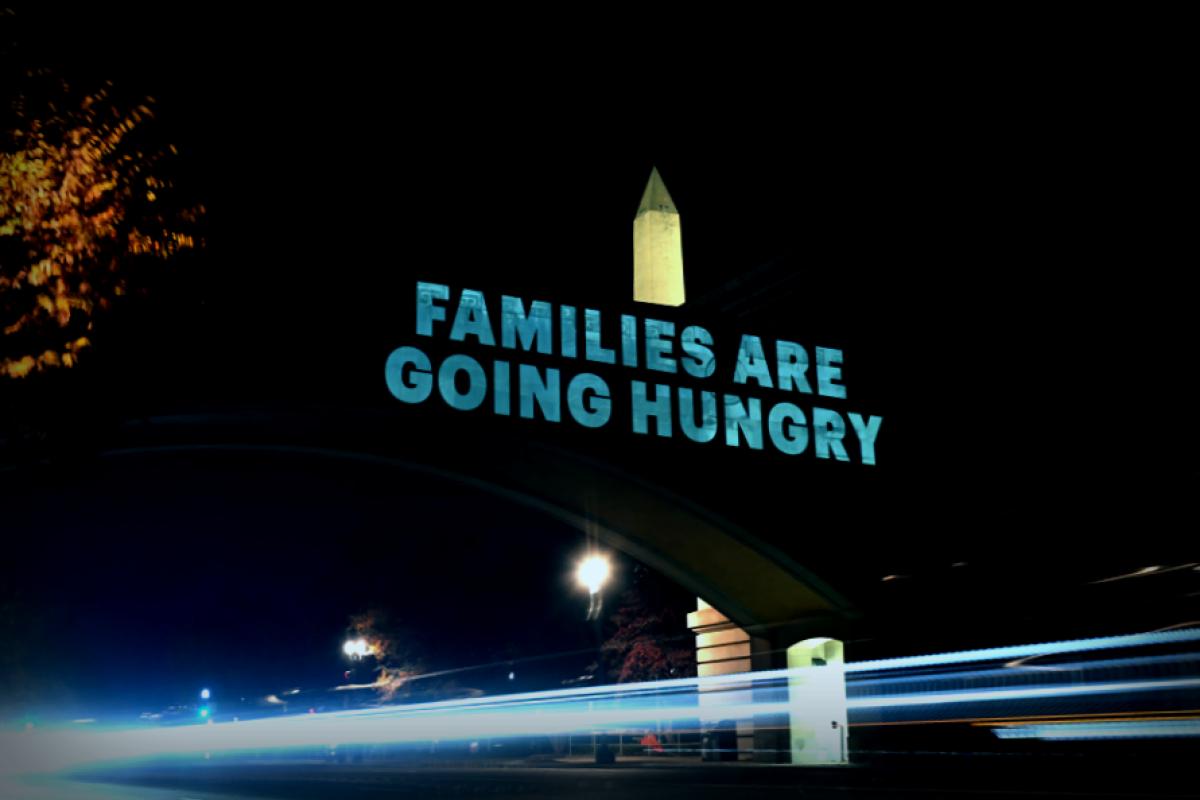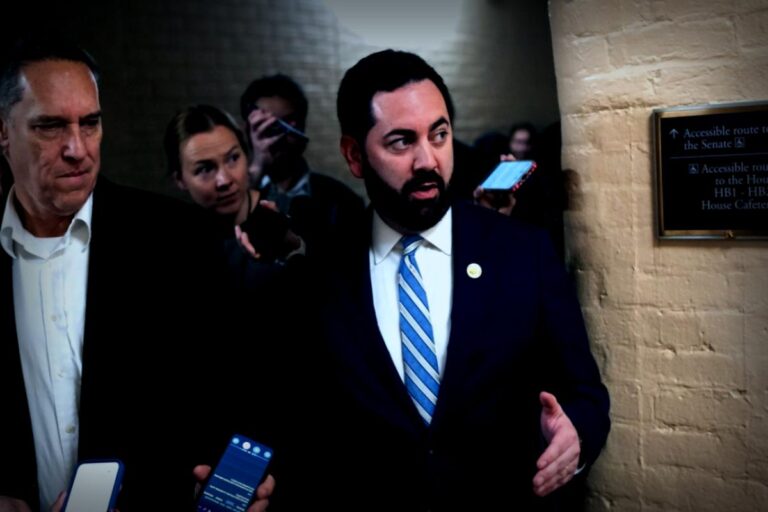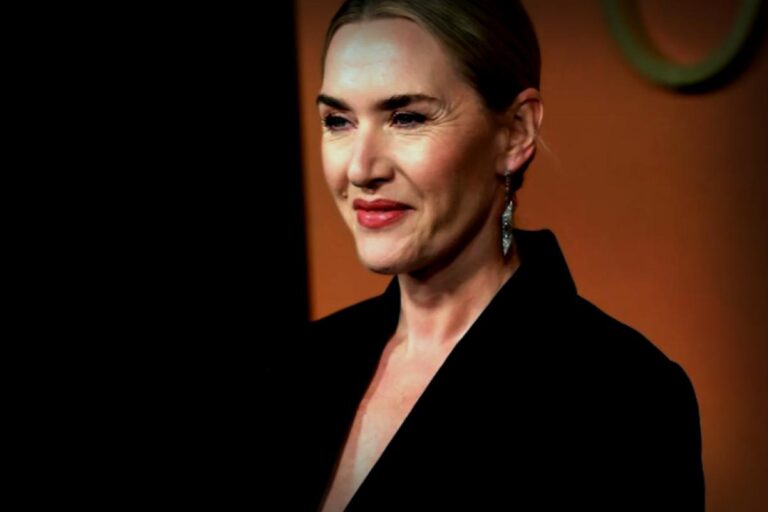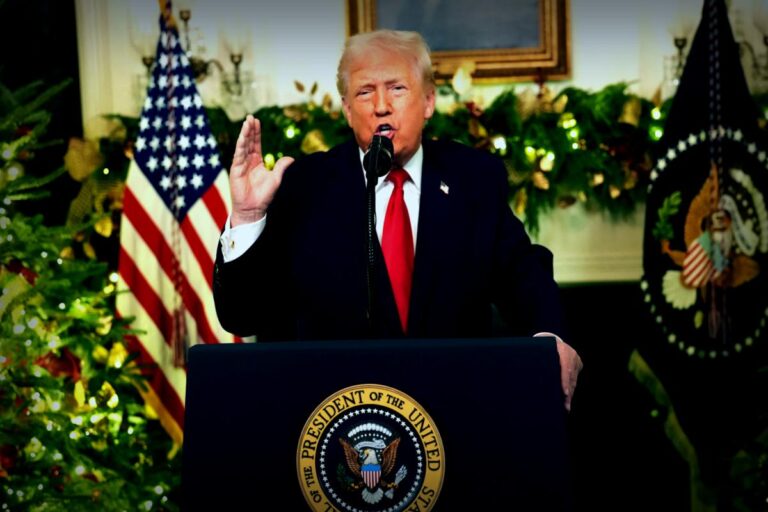WEST PALM BEACH, Fla. (AP) — The Trump administration is facing backlash over its legal strategies to dodge full funding for food stamps that millions of needy Americans typically rely on. This scenario has opened a window for Democrats wanting to showcase President Trump as out of touch and indifferent while the nation endures the longest government shutdown ever recorded.
During a recent CNN segment, House Democratic leader Hakeem Jeffries criticized the White House, saying, “Donald Trump and his administration have weaponized hunger, deliberately leaving SNAP benefits unpaid, despite clear directives from two lower courts that these funds must be distributed immediately.” Jeffries labeled the administration’s actions as “shameful.”
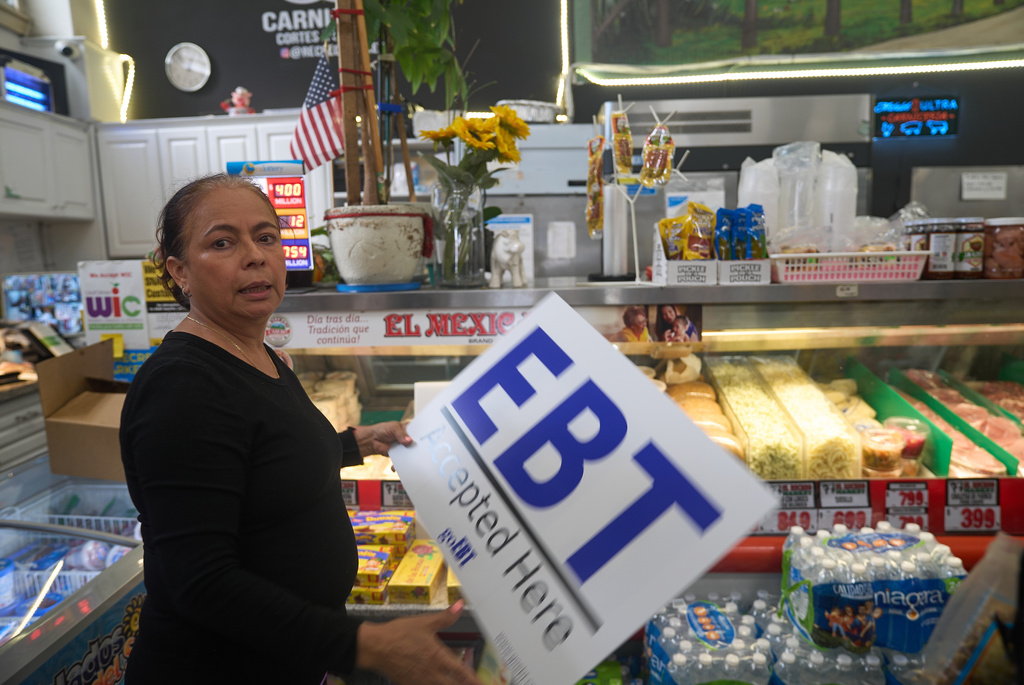
California Governor Gavin Newsom, who may run for president in 2028, echoed these sentiments, asserting via X that Trump’s legal battles show he is fighting to ensure Americans struggle with food insecurity. “HE DOES NOT CARE ABOUT YOU,” he pointedly remarked.
These comments follow a significant Supreme Court ruling on Friday, where the justices temporarily approved the administration’s emergency request to block a court’s order that mandated full funding of SNAP food aid payments amidst the shutdown. The Supplemental Nutrition Assistance Program, commonly known for aiding about 1 in 8 Americans, primarily supports lower-income families.
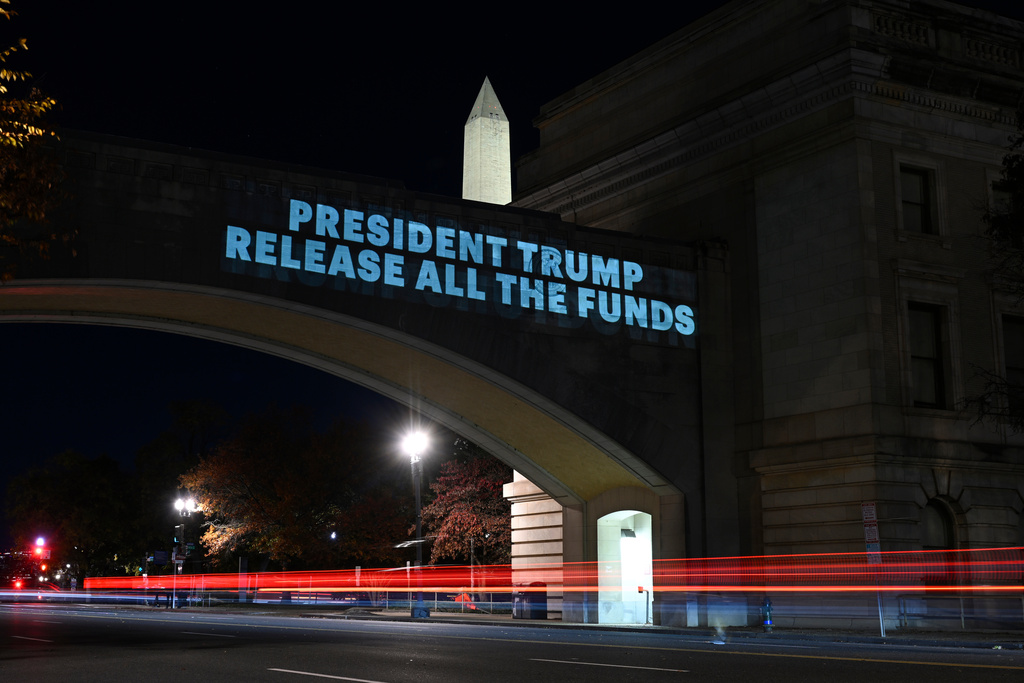
A legal directive required the administration to execute these payments by Friday; however, they sought a suspension of any orders allowing them to dole out more resources than what can be accessed from a contingency fund. They then opted for limited SNAP payments rather than commit to comprehensive support.
The unfolding legal arguments arrive on the heels of a rocky Election Day for the administration, with Democrats snatching impressive victories and voters displaying significant unease over the economy. This polling represents a potential trouble spot for Trump and his party leading into the crucial midterm elections next year.
In reaction to these setbacks, the White House plans to modify its communication strategy by focusing on affordability. They hope to alleviate concerns from voters troubled by rising living costs and highlight the introduction of new tax reductions while demonstrating headway in inflation management.
Shifting Blame During the Shutdown
Both Democratic and Republican officials are pointing fingers regarding responsibility for the shutdown’s consequences, which have actually spilled over to areas beyond Washington, D.C., such as airports facing increased challenges.
An AP-NORC Center for Public Affairs Research poll conducted in October indicates that around 60% of Americans think Trump and congressional Republicans are heavily accountable for the shutdown, while 54% attribute blame to congressional Democrats. A majority believed all parties deserved at least some responsibility.
The White House remained tight-lipped on Saturday regarding its motivations for appealing SNAP law rules to the Supreme Court or concerns about potential negative perceptions arising from its stand against full payments.
Agriculture Secretary Brooke Rollins criticized Democrats for not supporting the re-opening of the government and insisted that any required funding must originate from Congress. She emphasized, “We can’t just conjure money from thin air. You can’t fund a program Congress refuses to validate.”
Amid the furloughs and lack of pay for hundreds of thousands of government employees, Trump has taken measures to prioritize financial support for his favored groups, including military personnel, by directing the Pentagon to utilize all accessible funds.
Homeland Security Secretary Kristi Noem mentioned her agency’s successful efforts to provide pays for U.S. Coast Guard members and law enforcement through funds from the recently passed “One Big Beautiful Bill Act” from this summer.
FBI director Kash Patel has confirmed that special agents continue to receive their salaries, although most other bureau personnel do not, with unclear sources for these payments.
SNAP in Jeopardy
Donald Trump has repeatedly displayed skepticism towards SNAP and communicated mixed signals about the program’s status throughout the shutdown period.
In a Tuesday social media post, Trump declared halting SNAP payments until the government reopens, implying that some beneficiaries may not genuinely need them. Shortly after, press secretary Karoline Leavitt corrected him, stating that partial daylight benefits would still be paid using emergency contingency funds.
However, when questioned about a recent ruling from a judge demanding full payments, Trump deferred to Vice President JD Vance, who deemed the judge’s order “absurd,” expressing that federal judges shouldn’t dictate operations during a government standstill. Vance backed this argument, stating that during a shutdown, a federal judge shouldn’t determine the method for handling critical decisions.
Trump further commented on the need for liquidity during crises, insisting, “We cannot just give everything away.”
Continued Legal Battles
The Trump administration has faced multiple lawsuits from Democratic-leaning states, non-profits, and municipalities right after the announcement about SNAP’s absence in November due to the shutdown.
However, two judges ruled that the government does indeed need to continue providing assistance, stating that skipping out on November funds was not permissible. Judges instructed them to use over $4.6 billion from emergency reserves to cover payments that generally require between $8.5 and $9 billion each month.
Amid announcements of a 65% payment coverage for November, one judge ordered compliance for full payouts, which led the Justice Department to file for an emergency appeal. In documents submitted on Friday, the administration argued that the court had exceeded its legislative and executive bounds. As a higher court declined to overturn the payment deadline, the Trump administration sought another reprieve from the Supreme Court.
On orders from Justice Ketanji Brown Jackson, the high court agreed to maintain the full-payment orders on hold until a decision could be reached by the appeals court. Jackson, known for dissenting against more recent Trump-favoring decisions, has been assigned oversight of appeals from Rhode Island, the case’s origin.
The ongoing legal disputes leave many reliant on food aid stuck in a state of confusion. Some beneficiaries across various states report receiving their full amounts for November, while others may have to wait weeks for clarity.
___ Colvin and Whitehurst contributed to this piece from New York and Washington, respectively.





